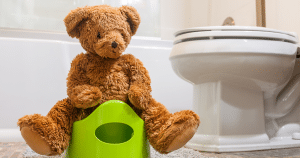Dealing with a Defiant Child – Everything You Need to
We are very happy to share this article from Jane Miller, our exclusive parent coach in Bournemouth. This article is includes everything you need to know about dealing with a defiant child.
In this article:
- What is a defiant toddler?
- What are the signs of a defiant toddler?
- How should you deal with a defiant toddler?
- What causes this behaviour?
- What is the best way to parent positively?
What is a defiant toddler?
A defiant toddler is a toddler that shows defiant behavior. The can be strong willed and they may be wanting to do their own things and rebelling against what you would like them to do. A toddler or child that you think may not be listening to you. Think they are being challenging and you are finding it hard at times to manage this.
What are the signs of a defiant toddler?

Your child could be challenging not wanting to do as you would like them to do or ask them to do.
You feel that your child isn’t always listening to you.
Having tantrums if you ask them to do something or tell them something they do not want to hear.
For your child to be answering you back.
Your child crying or shouting if they do not want to do something.
How should you deal with a defiant toddler?
To be as calm and patient as you can. By staying calm, can defuse the situation down faster. Your child may realise that they are not getting attention so calm down. Or realise you are not
Change your language. Be positive and mindful about the language you use with your child. Reflect on what you say and why. If your child is having a tantrum because they want something to eat (depends on what it is) while you are preparing their meal, instead of saying no, you could say yes though after dinner. If they are really hungry, could you give them a little something while they wait. Think about why you are saying no.
Sometimes if you distract your child this may get them interested in something else taking their mind off why they starting having a meltdown in the first place.
Be consistent when dealing with these meltdowns. Your child will then start to realise over time that you say what you mean.
If your child is over a years old, they will understand when you talk to them about what they did and why it isn’t good to react like that. Teach them the best way to react and what to say without them having to shout, cry, have a meltdown, hit out, throwing things or what ever they do. They choose these ways as you do not know how to express themselves and get frustrated.
What causes this behaviour?
Your child’s defiance can be due to several reasons. Your child may show defiant behavior for the following reasons:
Your child can be pushing boundaries to see what they will get.
Your child can be starting to understand about choices and they could maybe do different things.
If parents or carers are not consistent with what they do and say which causes confusion and blurs boundaries that may have been there before, children will understand and will react like this out of frustration.
Children are smart they know what they can get away with, with who and when.
If your child is tired or hungry. Making sure you eat at the best times for them is good.
What is the best way to parent positively?

- Parent consistently. Saying and doing the same all the time to stop the confusion and frustration for the child.
- Be mindful about the language you use.
- Reflect on the language you use and why you say the things you do. Sometimes we say things out of habit or have no reason why we say things.
- Choose your battles within reason. Your child isn’t always going to like what we say and do. Though do we have to make it hard for them or ourselves. Using a few of these tips together will help you navigate what works for you and your child. All children are different. Do not compare your children or others.
- Listen to what your child really wants and needs. Sometimes they could be asking for one thing or want to do something though it could be something else.
- Understand your child. This can be different sometimes as we have a lot to think about as parents though understanding them will help you navigate their needs.
- Reward good behavior. Positive reinforcement can help to teach your little one what behaviour is positive, and will ultimately help to adjust your child’s behavior to good behavior over time.
When to Contact Your Child’s Doctor

Sometimes, a child’s defiant behavior can be due to behavioral disorders. Below is some more information about potential behavioral disorders that can cause defiant behaviour:
Disruptive Behavior Disorders (DBD)
Disruptive behavior disorders can impact a child’s daily life. Children who have disruptive behavior disorders consistenly display an ongoing pattern defiant and uncooperative behavior, and their response to authority figures is hostility or indifference.
The most common forms of disruptive behavior disorders (ODD) are oppositional defiant disorder and conduct disorder (CD).
You can read more about disruptive behavior disorders here:
https://www.nationwidechildrens.org/conditions/disruptive-behavior-disorders
Oppositional Defiant Disorder (ODD)
ODD- or oppositional defiant disorder, is a type of behaviour disorder which causes children to portray characteristics such as hostility towards authority figures (such as parents, teachers and peers), lack of cooperation and defiance.
You can read more about ODD here:
https://www.hopkinsmedicine.org/health/conditions-and-diseases/oppositional-defiant-disorder
Attention Deficit Hyperactivity Disorder (ADHD)
Another potential cause of defiant behavior is attention deficit hyperactivity disorder, commonly known as ADHD.
Inattention and impulisivty caused by ADHD can make it difficult for children to stick with tasks that are repetitive, time-consuming or tedious, which can lead to the appearance of defiant behavior.
You can read more about the symptoms of ADHD on the NHS website:
https://www.nhs.uk/conditions/attention-deficit-hyperactivity-disorder-adhd/symptoms/
Contact Jane Miller

If you would like to contact Jane Miller, or find out more about positive parenting, you can do so via the links below:
Facebook: https://www.facebook.com/JaneMillerParentCoach/
Instagram: https://www.instagram.com/_janemillerparentcoach_/
Email: [email protected]
Phone: +44 7480 460054
To find your nearest parent coach visit our directory,
Jane supports parents/carers to hear and understand their children.
Her mission is to help parents/carers so they are not alone, not have to struggle and enjoy parenting.
Jane is a single parent of her beautiful 17-year-old daughter who has always had Jane on the tips of her toes. As a professional and with personal parenting experience, Jane has been able to see the struggles and gaps for parents on both sides.


















